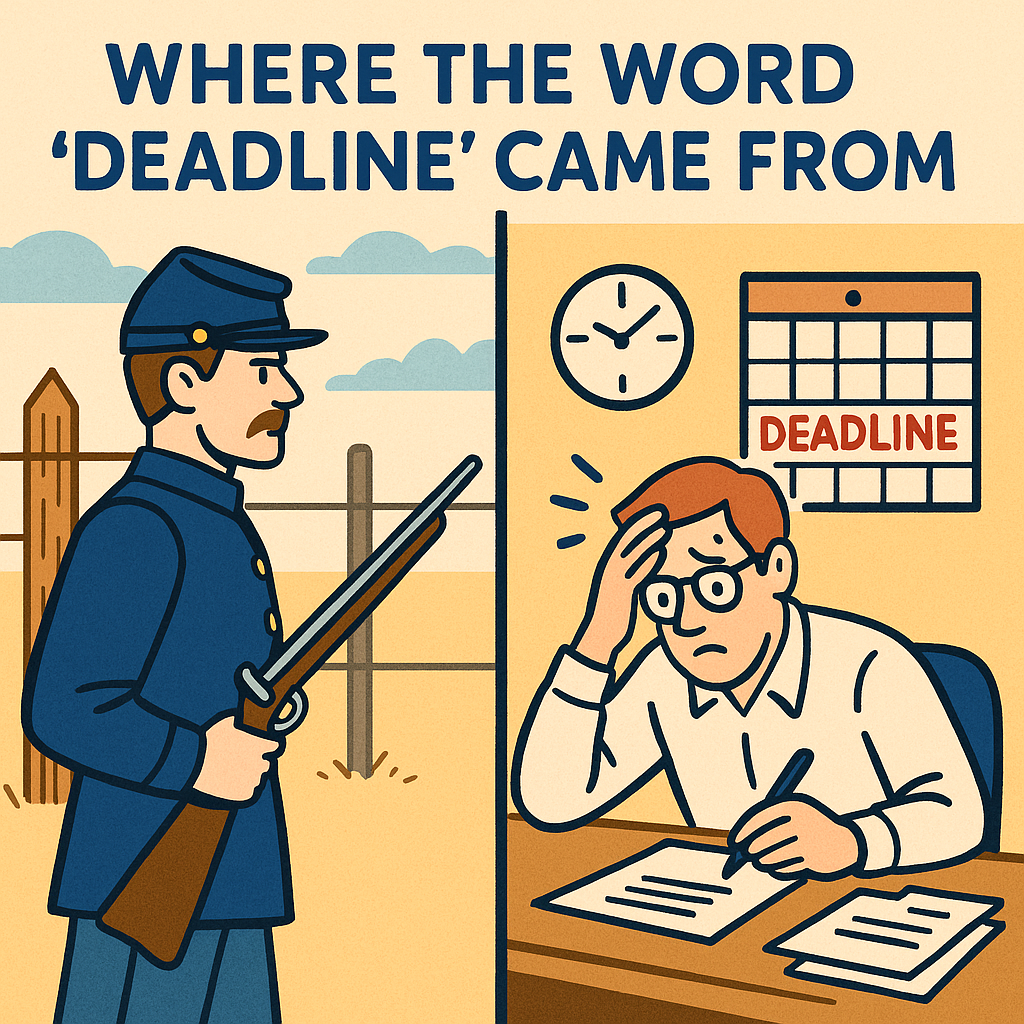These days, we all have deadlines.
Articles to write. Forms to submit. Emails to send.
Even retirement doesn’t entirely free us from them — they just take on new forms (like getting a blog post out by 9am sharp!).
But have you ever stopped to wonder where the word “deadline” comes from?
It turns out this everyday word has a surprisingly grim and very literal origin.
Not Just a Line on a Calendar
The earliest use of “deadline” wasn’t to describe a time limit.
In fact, it had nothing to do with dates or clocks at all.
It originated during the American Civil War, in the 1860s, inside military prison camps.
At Andersonville Prison in Georgia — one of the most notorious — a boundary line was drawn around the inner perimeter of the camp.
This boundary wasn’t marked by fences or walls but by a simple rope or rail, usually just a few feet from the actual stockade fence. And it came with a brutal rule:
Any prisoner who crossed the line was to be shot immediately. No questions asked.
It was, quite literally, a dead line.
Cross it, and you die.
From Prison Camp to Printing Press
After the war, the term gradually took on less life-threatening meanings.
It showed up in the 20th century in newspaper printing, where it referred to a physical line on the press layout — the point beyond which no more text could be added.
Eventually, the word evolved again to mean a time by which something must be completed.
It still carries an air of finality. Of consequence. Of “get it done, or else.”
Thankfully, today’s consequences are a little more forgiving than Civil War punishments!
Why It Still Matters
I like words that carry a bit of history. They remind us that language is alive — always changing, adapting, revealing who we were and who we are.
And in this case, “deadline” still works remarkably well.
Because even now, there’s a sense that when we miss one, something important is lost — whether it’s momentum, a client’s trust, or simply our own self-respect.
As someone who works to a blog schedule, and has spent decades delivering professional reports, I know how helpful (and sometimes stressful) a good deadline can be.
But they’re not just pressures.
They’re promises.
A Personal Reflection
I’ve been the administrative secretary of a professional representative organisation for more than 30 years, and I learned the power of deadlines early.
We were printing newsletters, running events, managing meetings — and everything came with a due date.
Miss a deadline, and the whole system wobbled.
Years later, that discipline has served me well in online marketing, too. Whether publishing a blog, preparing a lead magnet, or following up with email subscribers, keeping to a deadline keeps the wheels turning.
And now, in retirement, I actually find comfort in them.
They give shape to the week. Purpose to the day.
Final Thought
So the next time someone says, “What’s your deadline?” — take a moment to appreciate how far the word has come.
From death and punishment…
To discipline and progress.
Not a bad journey for just eight letters.



